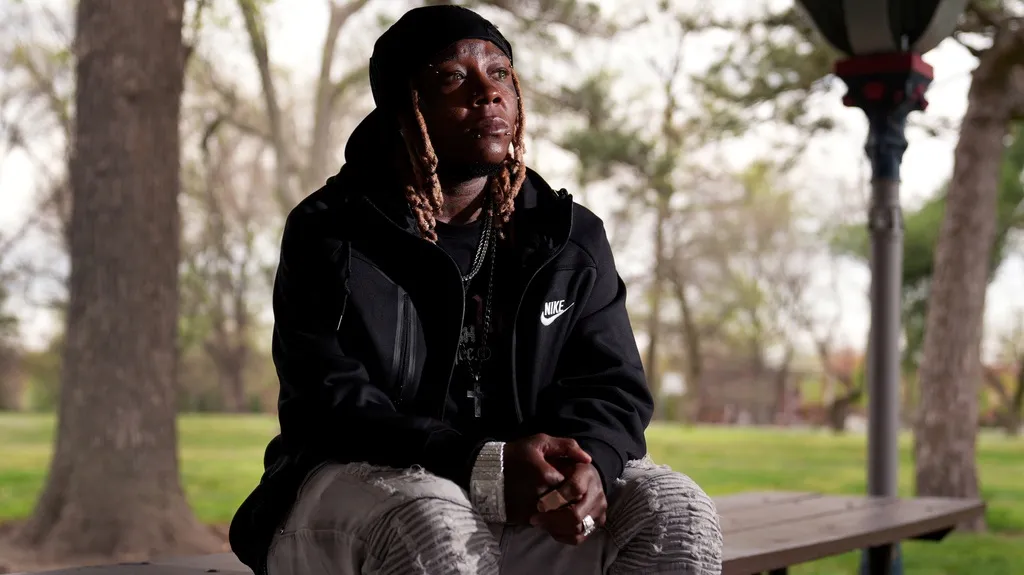October 2, 2016
Berkeley Sued in Trans Woman's Death
Seth Hemmelgarn READ TIME: 3 MIN.
The family of a transgender woman who died during a 2013 encounter with Berkeley police is fighting to keep a federal lawsuit against the city and several officers alive as officials work to get a judge to side with them before the case goes to trial.
Kayla Moore, 41, died in February 2013 after a friend asked for "mental health assistance" for her and police responded to her home, according to a complaint filed by Moore's father. Moore's family and community advocates say that "excessive force" caused her death.
But according to documents filed by the city, the Alameda County Coroner's office determined she died from a drug overdose. (Court records list Moore's name as Xavier "Kayla" Moore.)
Berkeley officials have asked for a summary judgment in the case, but Friday, September 23, U.S. District Judge Charles Breyer indicated he needed more time to examine the arguments.
In his second amended complaint, filed in October 2014 in the U.S. District Court for Northern California, Arthur Moore, Kayla Moore's father, says his daughter died "after being unlawfully seized, restrained, arrested, and battered by multiple" Berkeley officers.
Kayla Moore had "an extensive history of documented paranoid schizophrenia and numerous prior contacts" with police, and despite knowing about "Moore's disabling condition the officers initiated an unlawful arrest," the complaint says.
The filing, which along with other court documents uses male pronouns for Moore, says police threw her "onto a futon and restrained him with the combined body weight of at least six officers, in a fashion that interfered with his ability to breath, which predictably intensified his psychological distress and initiated a physiological crisis."
(A footnote in the city's motion for summary judgment noted that Kayla Moore was referred to as Xavier by her family during her life, and that the male pronouns and name used in the court proceeding are for "clarity and consistency ... without intending any disrespect.")
"Tragically," the document says, "Moore lost consciousness and died as a result of the officers' unwarranted and excessive use of force."
In their response to the complaint, Berkeley officials denied the most significant allegations, and in the motion for summary judgment filed in June, they said, "The coroner determined that the cause of Mr. Moore's death was 'acute combined drug intoxication' (methamphetamine and codeine)" combined with a "grossly enlarged heart" and other heart conditions that lead to cardiac arrest. Moore weighed almost 350 pounds, according to court documents. A copy of the coroner's report wasn't immediately available.
In court last Friday, Breyer said, "This is a case involving excessive force. ... Some of the other claims are not survivable, but the excessive force is."
Lynne Bourgault, deputy city attorney, said Friday that "there was no evidence anyone was on top of the decedent" and "the officers are entitled to a finding of no excessive force."
They were "simply using control holds," and there was "no force after [Moore] was restrained and stopped fighting and resisting," Bourgault said.
At first, Breyer granted the city's motion disputing Arthur Moore's argument that his daughter was wrongfully arrested.
But Adante Pointer, one of Moore's attorneys, noted that the warrant police had found for "Xavier Moore" the night of her arrest was for someone almost 20 years older than Kayla Moore.
"I'll look again at the arrest," Breyer told Pointer. "I owe you that."
He said that he would decide on the rest of the case by October 17, when it will be back in court for a status conference.
Court documents indicate that Moore had been troubled for years before she died and that she could be violent.
A San Francisco landlord working to evict her in 2007 said, "You forced your way into" another tenant's room "and refused to leave, causing the tenant to call the police to have you removed." The landlord complained there had been similar incidents.
The records don't include a response from Moore, and the case was eventually dismissed with prejudice.
In a 2011 eviction case, a property manager at a different building in San Francisco wrote that Moore had been a "nuisance," including by fighting and causing fires, court documents show.
A response countered that the landlord hadn't made "needed repairs" on the property and the smoke alarms were "overly sensitive." The case was eventually settled.
Before a pre-hearing rally outside the courthouse Friday, Maria Moore, 42, Kayla Moore's sister, said that she'd "wanted to live a normal life. She thought she could have that in Berkeley. ... To say that she died of an overdose is an insult. We're hoping the court will see that."






